-
 Bitcoin
Bitcoin $84,829.9529
2.58% -
 Ethereum
Ethereum $1,653.3541
5.37% -
 Tether USDt
Tether USDt $0.9997
0.02% -
 XRP
XRP $2.1511
6.99% -
 BNB
BNB $596.7417
1.97% -
 Solana
Solana $130.6749
9.05% -
 USDC
USDC $1.0000
0.03% -
 Dogecoin
Dogecoin $0.1665
4.51% -
 TRON
TRON $0.2490
3.44% -
 Cardano
Cardano $0.6570
5.58% -
 UNUS SED LEO
UNUS SED LEO $9.3400
-0.78% -
 Chainlink
Chainlink $13.1086
4.15% -
 Avalanche
Avalanche $20.5212
6.71% -
 Stellar
Stellar $0.2474
6.34% -
 Sui
Sui $2.3122
5.20% -
 Toncoin
Toncoin $3.0187
2.69% -
 Shiba Inu
Shiba Inu $0.0...01258
4.70% -
 Hedera
Hedera $0.1728
3.92% -
 Bitcoin Cash
Bitcoin Cash $351.4678
13.36% -
 MANTRA
MANTRA $6.3404
-1.30% -
 Litecoin
Litecoin $78.8277
3.13% -
 Polkadot
Polkadot $3.7111
4.66% -
 Hyperliquid
Hyperliquid $16.0831
6.37% -
 Dai
Dai $1.0001
0.02% -
 Bitget Token
Bitget Token $4.3789
1.39% -
 Pi
Pi $0.7353
21.47% -
 Ethena USDe
Ethena USDe $0.9989
0.03% -
 Monero
Monero $206.3486
2.66% -
 Uniswap
Uniswap $5.5467
6.08% -
 OKB
OKB $53.6175
0.52%
How to determine whether the mining pool hides the real income?
To assess a mining pool's transparency, verify reported hashrate, examine fees and payouts, check reputation, and use block explorers to confirm block finds and rewards.
Mar 30, 2025 at 02:28 pm
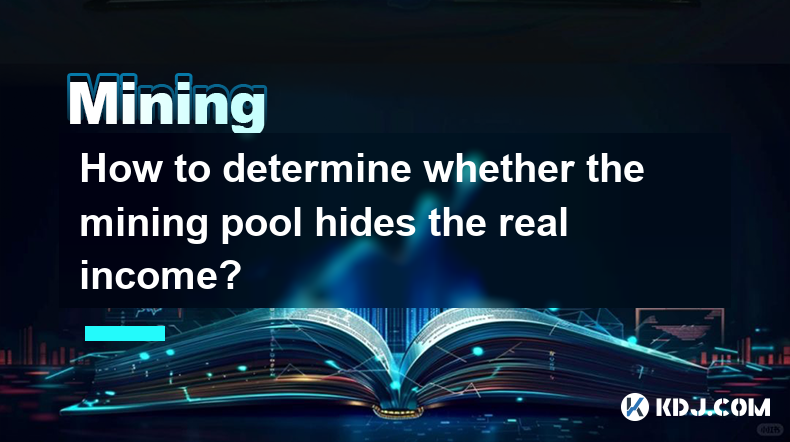
Understanding Mining Pool Transparency
Mining pools aggregate the hashing power of many miners to increase the chances of solving a block and earning rewards. However, a lack of transparency can lead to concerns about whether the pool is accurately reporting its earnings. This article will explore methods to assess the honesty and transparency of a mining pool, focusing on identifying potential discrepancies in reported income. Understanding these methods is crucial for miners seeking to maximize their profits and ensure fair compensation for their computational resources.
Verifying Reported Hashrate and Block Rewards
One key aspect is verifying the reported hashrate against independent sources. Check the pool's website for real-time hashrate statistics. Compare this data with estimates from third-party websites that monitor mining pool performance. Significant discrepancies may suggest manipulation. Also, carefully examine the block reward payouts. These should align with the expected rewards based on the pool's reported hashrate and the current block reward structure of the cryptocurrency.
Analyzing Pool Fees and Payout Structures
Mining pools charge fees for their services. Transparency in fee structures is vital. Look for clearly stated fee percentages and ensure these fees are consistently applied. Hidden fees or fluctuating fee structures should raise red flags. Scrutinize the payout system. Understand how often payouts are made and whether there are minimum payout thresholds. Unreasonably high fees or infrequent payouts could indicate potential issues.
Examining Pool's Reputation and History
A pool's reputation within the cryptocurrency community is a significant factor. Research the pool's history and read reviews from other miners. Look for any reports of suspicious activity, delayed payments, or inconsistencies in reported earnings. Online forums and social media groups can provide valuable insights into the experiences of other miners using the same pool. A long-standing pool with a positive reputation is generally a safer bet.
Utilizing Block Explorer Data for Verification
Block explorers provide a public record of blockchain transactions. Use block explorers to verify the pool's reported block finds. Compare the number of blocks mined by the pool with its reported statistics. Any significant differences should be investigated further. Cross-reference the block rewards with the pool's payout records. This helps to confirm that the pool is accurately distributing the rewards to its miners.
Checking for Evidence of Secret Mining or Pool Hopping
Be wary of pools suspected of "secret mining," where the pool secretly mines for its own benefit without sharing the profits fairly with its miners. This is difficult to detect directly but can be hinted at by consistently low payouts relative to the reported hashrate. Also, be cautious of pools that encourage "pool hopping," where miners frequently switch pools to exploit short-term advantages. This can be a sign of instability and potentially unfair practices.
Understanding the Limitations of Verification
It's important to acknowledge that complete verification of a mining pool's honesty is inherently challenging. The decentralized nature of blockchain technology makes it difficult to definitively prove the absence of malicious activity. However, by diligently employing the methods outlined above, miners can significantly reduce their risk and improve their confidence in the transparency of their chosen mining pool.
Step-by-Step Guide to Assessing a Mining Pool's Transparency
Here’s a step-by-step guide to help you assess a mining pool's transparency:
- Step 1: Check the pool's website for its stated hashrate and compare it to independent sources.
- Step 2: Verify the pool's fee structure for clarity and consistency.
- Step 3: Examine the pool's payout system, noting frequency and minimum thresholds.
- Step 4: Research the pool's reputation and history through online reviews and forums.
- Step 5: Use a block explorer to cross-reference the pool's reported block finds and payouts.
- Step 6: Look for any signs of secret mining or pool hopping behavior.
Frequently Asked Questions
Q: What are the common signs of a dishonest mining pool?
A: Common signs include inconsistent hashrate reporting, unexplained discrepancies between reported and actual payouts, unusually high fees, infrequent payouts, a poor reputation within the community, and evidence of secret mining or pool hopping.
Q: How often should I verify my mining pool's performance?
A: Regularly verifying your mining pool's performance is recommended, ideally on a weekly or monthly basis. This allows you to catch any potential issues early on.
Q: What should I do if I suspect my mining pool is hiding income?
A: If you suspect your mining pool is hiding income, consider switching to a different, more reputable pool. You may also want to report your concerns to the cryptocurrency community through online forums or social media.
Q: Are all mining pools dishonest?
A: No, not all mining pools are dishonest. Many reputable pools operate transparently and fairly. However, it's crucial to conduct due diligence before choosing a pool to ensure you are working with a trustworthy provider.
Q: Can I independently audit a mining pool's operations?
A: Independently auditing a mining pool's operations is extremely difficult, requiring significant technical expertise and access to their internal systems. The methods described above focus on publicly available information to assess transparency.
Disclaimer:info@kdj.com
The information provided is not trading advice. kdj.com does not assume any responsibility for any investments made based on the information provided in this article. Cryptocurrencies are highly volatile and it is highly recommended that you invest with caution after thorough research!
If you believe that the content used on this website infringes your copyright, please contact us immediately (info@kdj.com) and we will delete it promptly.
- DRML Miner: The Best Trusted Cloud Mining Platform in 2025
- 2025-04-13 00:45:13
- Binance Slashes Collateral Ratios for 10 Altcoins in Portfolio Margin Update
- 2025-04-13 00:45:13
- Pi Coin Begins Defying Its Skeptics as Its User Base Grows from Online Trading into Actual Real-World Payments
- 2025-04-13 00:40:13
- Remittix (RTX) Attracts the Attention of Analysts and Retail Investors Alike, Promising 10x Returns in 2025
- 2025-04-13 00:40:13
- Donald Trump's Crypto Venture Makes a Considerable Purchase of SEI Tokens
- 2025-04-13 00:35:13
- From terrified child to world-renowned magician: The incredible journey of Sossam Chazi
- 2025-04-13 00:35:13
Related knowledge
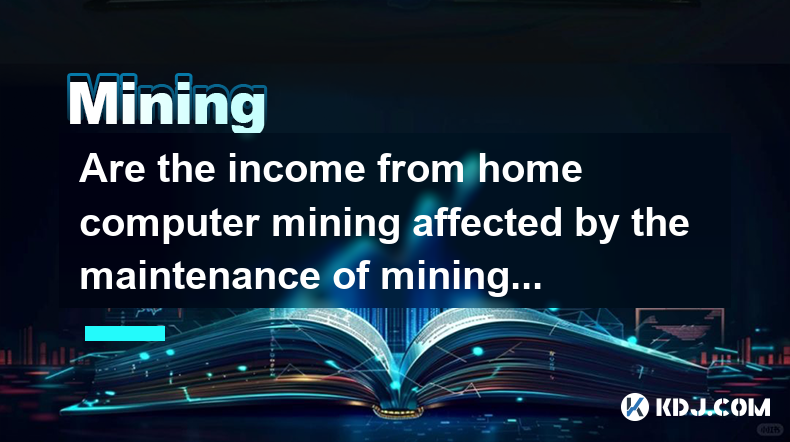
Are the income from home computer mining affected by the maintenance of mining equipment?
Apr 12,2025 at 06:56pm
Introduction to Home Computer MiningHome computer mining refers to the process of using personal computers to mine cryptocurrencies such as Bitcoin, Ethereum, and others. This method of mining has become popular among enthusiasts who want to participate in the cryptocurrency ecosystem without investing in specialized mining hardware. However, the income...
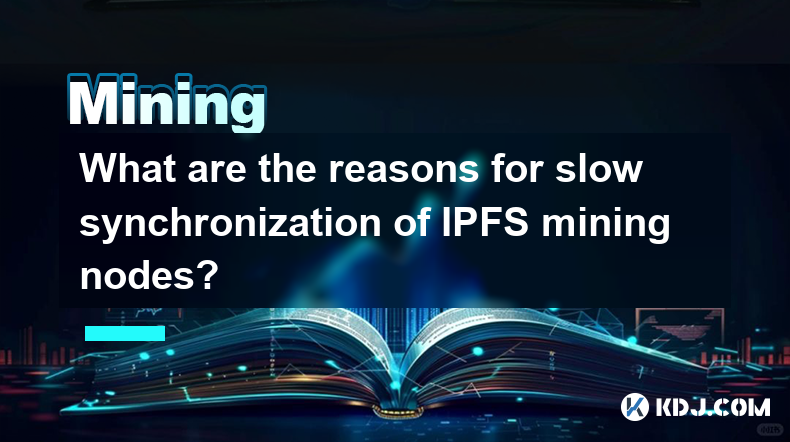
What are the reasons for slow synchronization of IPFS mining nodes?
Apr 13,2025 at 01:07am
The synchronization of InterPlanetary File System (IPFS) mining nodes is a critical process that ensures the integrity and efficiency of the decentralized network. However, users often encounter slow synchronization, which can be frustrating and impact their overall experience. Understanding the reasons behind this issue is essential for optimizing node...
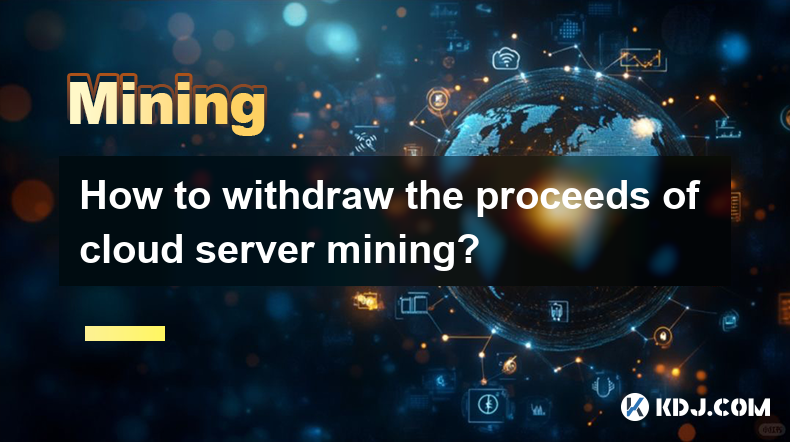
How to withdraw the proceeds of cloud server mining?
Apr 12,2025 at 06:14pm
How to Withdraw the Proceeds of Cloud Server Mining? Cloud server mining has become an increasingly popular way for individuals to participate in cryptocurrency mining without the need for expensive hardware and technical expertise. However, once you've successfully mined some cryptocurrency, the next crucial step is understanding how to withdraw your p...
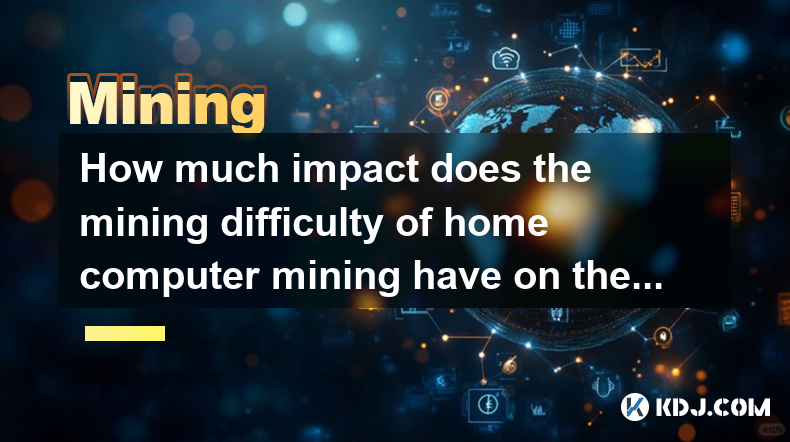
How much impact does the mining difficulty of home computer mining have on the benefits?
Apr 12,2025 at 11:01pm
The mining difficulty of cryptocurrencies significantly affects the benefits that can be derived from mining on a home computer. Mining difficulty refers to the measure of how difficult it is to find a hash below a given target, which is a critical component of the mining process for cryptocurrencies like Bitcoin. This article will explore the impact of...
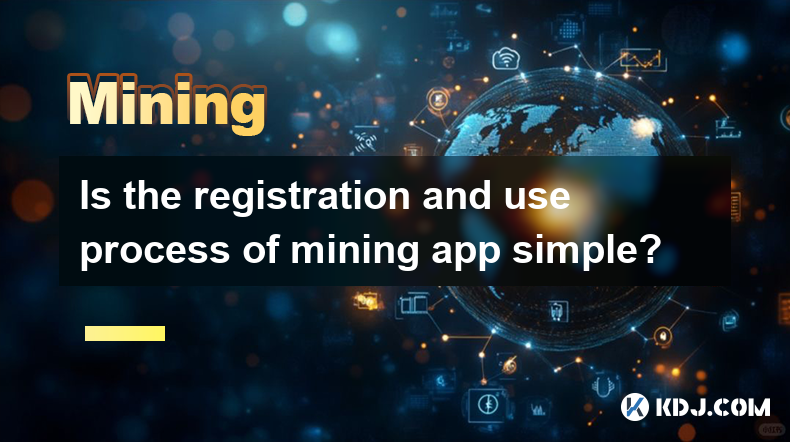
Is the registration and use process of mining app simple?
Apr 12,2025 at 02:07pm
The registration and use process of a mining app can vary in complexity depending on the specific app in question. However, many modern mining apps strive to be user-friendly, aiming to simplify the process for both novice and experienced users. In this article, we will delve into the typical steps involved in registering and using a mining app, highlig...
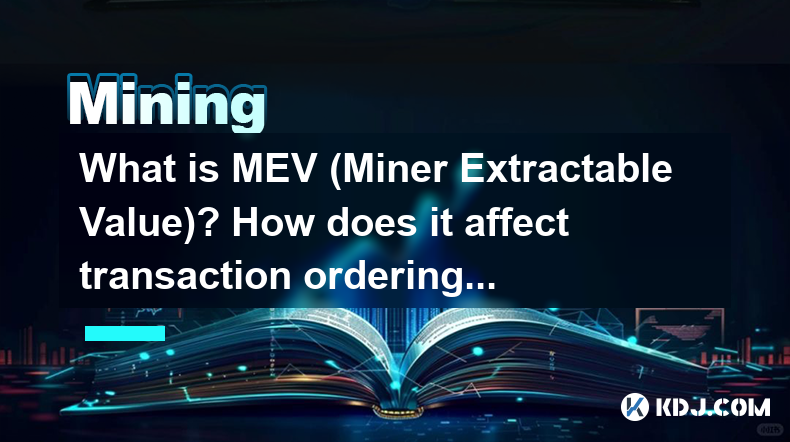
What is MEV (Miner Extractable Value)? How does it affect transaction ordering?
Apr 11,2025 at 10:00pm
MEV (Miner Extractable Value) is a concept within the cryptocurrency ecosystem that describes the profit a miner can make by including, reordering, or excluding transactions in the blocks they mine. This value arises from the ability of miners to manipulate the order of transactions within a block, which can lead to significant financial opportunities o...

Are the income from home computer mining affected by the maintenance of mining equipment?
Apr 12,2025 at 06:56pm
Introduction to Home Computer MiningHome computer mining refers to the process of using personal computers to mine cryptocurrencies such as Bitcoin, Ethereum, and others. This method of mining has become popular among enthusiasts who want to participate in the cryptocurrency ecosystem without investing in specialized mining hardware. However, the income...

What are the reasons for slow synchronization of IPFS mining nodes?
Apr 13,2025 at 01:07am
The synchronization of InterPlanetary File System (IPFS) mining nodes is a critical process that ensures the integrity and efficiency of the decentralized network. However, users often encounter slow synchronization, which can be frustrating and impact their overall experience. Understanding the reasons behind this issue is essential for optimizing node...

How to withdraw the proceeds of cloud server mining?
Apr 12,2025 at 06:14pm
How to Withdraw the Proceeds of Cloud Server Mining? Cloud server mining has become an increasingly popular way for individuals to participate in cryptocurrency mining without the need for expensive hardware and technical expertise. However, once you've successfully mined some cryptocurrency, the next crucial step is understanding how to withdraw your p...

How much impact does the mining difficulty of home computer mining have on the benefits?
Apr 12,2025 at 11:01pm
The mining difficulty of cryptocurrencies significantly affects the benefits that can be derived from mining on a home computer. Mining difficulty refers to the measure of how difficult it is to find a hash below a given target, which is a critical component of the mining process for cryptocurrencies like Bitcoin. This article will explore the impact of...

Is the registration and use process of mining app simple?
Apr 12,2025 at 02:07pm
The registration and use process of a mining app can vary in complexity depending on the specific app in question. However, many modern mining apps strive to be user-friendly, aiming to simplify the process for both novice and experienced users. In this article, we will delve into the typical steps involved in registering and using a mining app, highlig...

What is MEV (Miner Extractable Value)? How does it affect transaction ordering?
Apr 11,2025 at 10:00pm
MEV (Miner Extractable Value) is a concept within the cryptocurrency ecosystem that describes the profit a miner can make by including, reordering, or excluding transactions in the blocks they mine. This value arises from the ability of miners to manipulate the order of transactions within a block, which can lead to significant financial opportunities o...
See all articles























































































